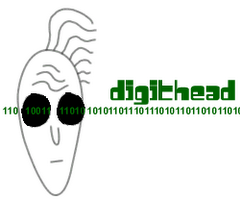Don't you hate it when someone reads the first chapter of a book and then decides they're qualified to review it? So do I. But based on the first chapter, Elements of Programming by Alexander Stepanov, Paul McJones is something I might want to come back to, so here's my reminder to myself.
Stepanov is the guy behind the C++ Standard Template Library (STL), an advocate of generic programming and a critic of OOP. (papers here)
The authors have done for C++ something that is more commonly done for the functional languages, which is to put the language on a formal mathematical basis. Their central insight is the parallel between algorithms and data structures and algebraic structures. Abstract algebraic structures consist of one or more sets and one or more operations on those sets.
The formalism introduced in the book is based on objects with mutable state "computers with memory constitute the only available realization of a universal computing device". They seem to value that C++ is "faithful to the underlying machine". I wonder how this formalism will hold up to parallel computation, in contrast to the immutability and statelessness that seem popular in these increasingly parallel days. I also wonder about the comparison between this formalism and the lambda calculus.
They define a notion called regularity. A regular function is a pure side-effect-free function (If I'm reading right). Procedures and types can also be regular. A regular type is required to implement operation for equality, assignment, destructor, default constructor, copy constructor, total ordering, and underlying type. A concept is a minimal set of requirements a data type must satisfy for an algorithm to be applicable. Algorithms can then be implemented in terms of concepts rather than concrete data types. (I think?) Concepts can have semantic requirement like linear time complexity for a given operation, bringing efficiency into the mix.
Whether one likes this book will be strongly influenced by how well one likes generic programming in C++. And maybe whether one wants one's theory sullied by implementation details. I like the idea that generic programming can be something more than making a type checker happy -- more than the type-safe collections of Java's puny generics. And who would have thought you could extract a pretty mathematical theory from the warty ugster known as C++?
A reviewer on Amazon suggests a related Google Tech Talk "A Possible Future of Software Development" by Sean Parent.








 R Bloggers
R Bloggers
No comments:
Post a Comment